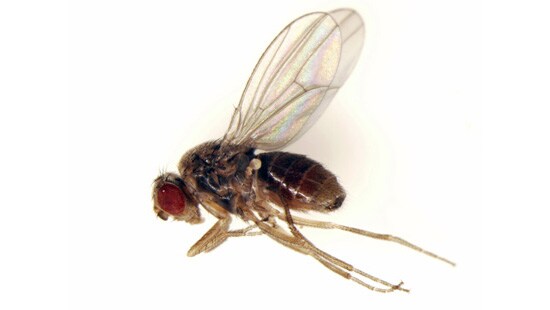
Commercial Small Fly Elimination
Small Flies, Big Problems
Prolific breeders that develop rapidly, a few small flies can quickly become a full-blown fruit fly infestation in only a matter of days and can be quite bothersome to customers and staff. Their association with sanitation issues and rotting food means small flies present in your location can negatively impact health inspection scores and even end up on social media. Ecolab’s research has proven that small flies can transfer bacteria to food and food preparation surfaces, putting your customers at risk of foodborne illness.
Our Small Fly Program defends against small fly infestations, addressing different life stages for maximum impact. Your commercial small fly elimination program can include:
- Adult small fly removal for immediate relief and to prevent future breeding activity
- Thorough inspections to identify breeding, feeding and resting sites
- Actionable structural and sanitation recommendations to eliminate breeding and feeding sites
- Breeding and feeding material removal and/or treatment to break the reproduction cycle
- Treatment of adult fly resting areas
- Recommendations to prevent re-infestation
When you partner with Ecolab you can be confident you are getting innovative, science-based solutions delivered by rigorously trained pest specialists who deliver consistent service protocols; actionable insights to proactively prevent pest risk; customer support 24/7/365; and a strong commitment to partnership. Together, we protect success.
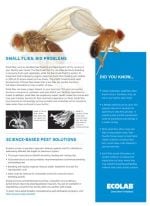
Download the Small Fly Fact Sheet
Small Fly Videos
Food Safety Webinar: Small Flies
Watch a recording of the June 2018 Food Safety Webinar: Small Flies. Ecolab Pest Elimination experts discuss small fly biology and behavior, how to prevent small flies from entering your facility, and Ecolab’s recent research that shows that small (“fruit”) flies can transfer dangerous pathogens.
Can Fruit Flies Transfer Pathogens?
First-of-its-kind Ecolab research shows that small (“fruit”) flies can transfer dangerous pathogens like E.coli and Salmonella-just like their large fly counterparts-making a fruit fly infestation a direct contributor to different types of foodborne illness.
Small Flies Create Big Problems
Don’t let their size fool you. Small flies can create big problems for businesses. These types of flies can indicate a sanitation or structural issue. Watch this short video on the importance of partnering with the experts at Ecolab to eliminate small flies in your establishment.
Teaming Up Against Small Flies
Watch this educational video on how to address the top sanitation and structural issues that contribute to small flies.
Drain Cleaning for Small Fly Prevention
To prevent small flies from breeding and feeding in your drains, follow these drain cleaning steps to reduce the conditions where they thrive.
Small Fly Articles
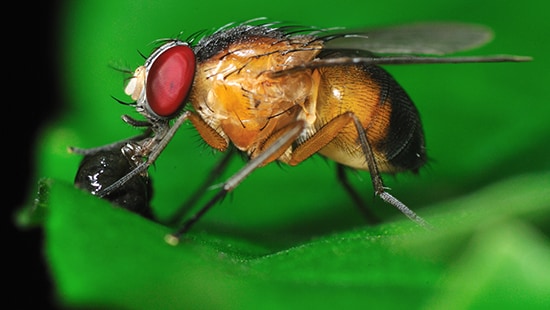
Facts About Small Flies
Depending on the types of flies that are present, different actions may be required for treatment and elimination. Understanding some of the more common types of small flies and their preferred breeding sites can help with fly prevention in your facility.
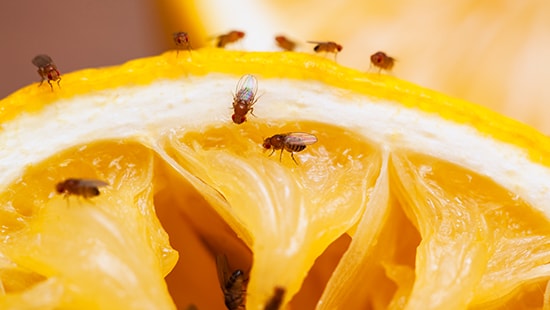
Small Flies and Food Safety
Although the fruit fly (also known as a small fly) has historically been considered a nuisance pest, recent research proves that small flies contaminate food with bacteria carried from unsanitary surfaces (such as trash, drains, mops, etc.).

Small Flies and Customer Experience
You’re enjoying a meal with friends at a restaurant and mid-sentence, you notice a fruit fly buzzing around in front of you. While you probably find this to be a nuisance, did you know it is also a sign of sanitation issues in the restaurant?
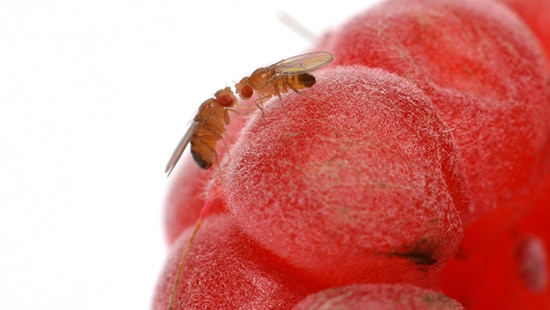
Fly Control and Prevention
There are many simple actions that can make a big difference in avoiding a fruit fly infestation.
Small Fly Educational Resources

Small and Large Fly Tip Sheet
Learn about the two distinct types of flies-each requires a unique approach to fly prevention and fly elimination.
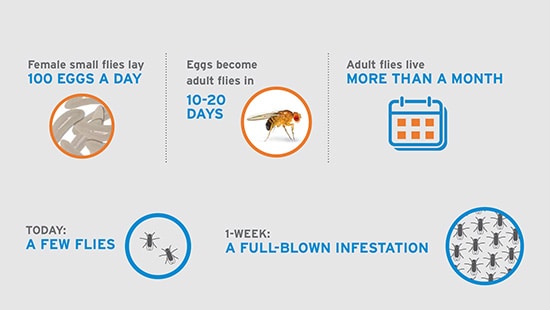
Small Fly Infographic
Learn about the unique biology and risks of small (“fruit”) flies and how to reduce small fly issues.
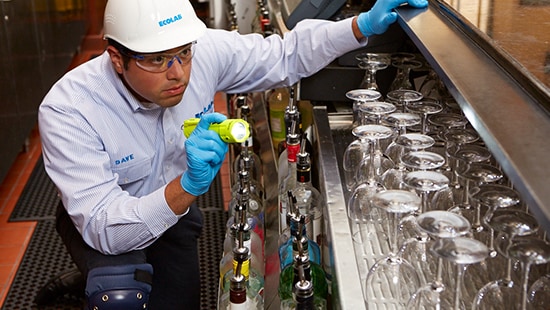
Small Fly White Paper
Learn about the biology, behavior and food safety risks of small flies with Ecolab’s White Paper: Fruit Flies in Foodservice Facilities: Science-Based Fruit Fly Solutions


